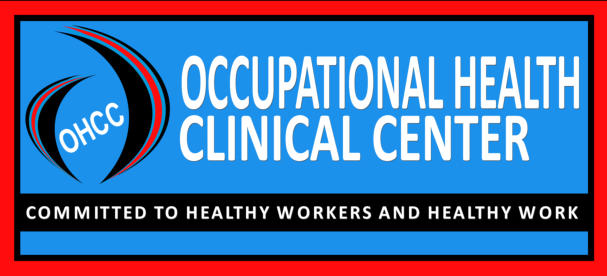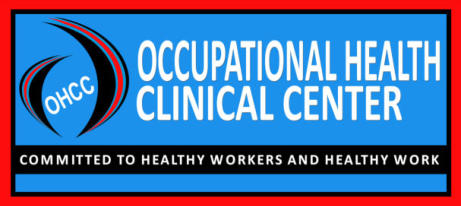
2019 © OCCUPATIONAL HEALTH CLINICAL CENTER / 6712 BROOKLAWN PARKWAY, SUITE 204 / SYRACUSE / NY / 13211
PHONE: 315-432-8899 / FAX: 315-431-9528 / EMAIL: CNYOHCC@UPSTATE.EDU

Services - Workers
MEDICAL EVALUATION AND TREATMENT OF WORKERS WITH OCCUPATIONAL ILLNESS
With a physician Board Certified in Occupational Medicine and a seasoned staff of nurse practitioners, nurses, industrial hygienist, and social worker the OHCC is able to bring the skills of an experienced, multidisciplinary team to the diagnosis and treatment of workers with illnesses caused by their work. DIAGNOSIS Assessment of workplace exposures is key to the diagnosis of an occupational illness. The OHCC team is trained to obtain this information through a detailed occupational history, assessment of exposure data from the workplace, and review of medical and scientific literature. TREATMENT Appropriate treatment of an occupational illness addresses the worker's symptoms, workplace, and need for access to benefits and other support. OHCC clinicians provide medications and other means to treat symptoms, but in addition attempt to identify strategies for reducing or eliminating the workplace exposures causing the symptoms. A healthy workplace allows workers to return to work or stay at work without concern that their illness will worsen or recur. OHCC providers also assess the impact the illness has on the worker's ability to work and will provide recommendations about what kinds of work and tasks she or he can safely do. Advocacy for workers applying for Workers' Compensation or other benefits is another routine part of the care OHCC offers. REFERRAL AND COORDINATION OF CARE OHCC staff coordinates referral to other specialists and treatment services, which is often necessary for effective treatment of complicated and chronic illnesses. Coordination also includes: obtaining authorization for diagnostic testing and treatment from the Workers' Compensation insurance carrier; communicating with workers' attorneys; and resolving issues that arise when dealing with insurers and disability benefits systems.


2019 © OCCUPATIONAL HEALTH CLINICAL CENTER / 6712 BROOKLAWN PARKWAY, SUITE 204
/ SYRACUSE / NY / 13211
PHONE: 315-432-8899 / FAX: 315-431-9528 / EMAIL: CNYOHCC@UPSTATE.EDU
Services - Worker
MEDICAL EVALUATION AND TREATMENT OF WORKERS WITH
OCCUPATIONAL ILLNESS
With a physician Board Certified in Occupational Medicine
and a seasoned staff of nurse practitioners, nurses, industrial
hygienist, and social worker the OHCC is able to bring the
skills of an experienced, multidisciplinary team to the
diagnosis and treatment of workers with illnesses caused by
their work.
DIAGNOSIS
Assessment of workplace exposures is key to the diagnosis of
an occupational illness. The OHCC team is trained to obtain
this information through a detailed occupational history,
assessment of exposure data from the workplace, and review
of medical and scientific literature.
TREATMENT
Appropriate treatment of an occupational illness addresses
the worker's symptoms, workplace, and need for access to
benefits and other support. OHCC clinicians provide
medications and other means to treat symptoms, but in
addition attempt to identify strategies for reducing or
eliminating the workplace exposures causing the symptoms.
A healthy workplace allows workers to return to work or stay
at work without concern that their illness will worsen or
recur.
OHCC providers also assess the impact the illness has on the
worker's ability to work and will provide recommendations
about what kinds of work and tasks she or he can safely do.
Advocacy for workers applying for Workers' Compensation or
other benefits is another routine part of the care OHCC
offers.
REFERRAL AND COORDINATION OF CARE
OHCC staff coordinates referral to other specialists and
treatment services, which is often necessary for effective
treatment of complicated and chronic illnesses.
Coordination also includes: obtaining authorization for
diagnostic testing and treatment from the Workers'
Compensation insurance carrier; communicating with
workers' attorneys; and resolving issues that arise when
dealing with insurers and disability benefits systems.

































